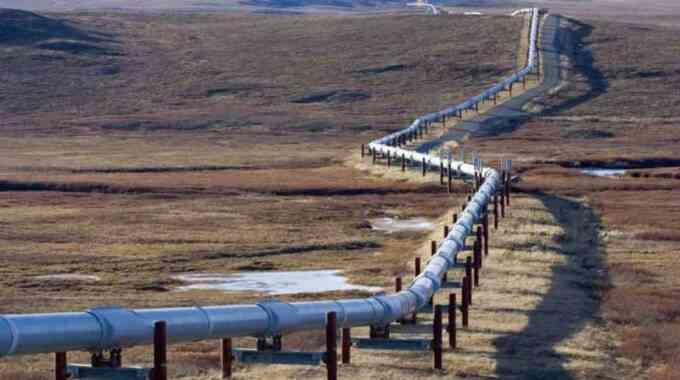News / National
NOIC plans to boost pipeline capacity to 5 billion litres annually
28 Nov 2024 at 06:51hrs |
0 Views

The National Oil Infrastructure Company of Zimbabwe (NOIC) has unveiled plans to significantly increase the country's fuel pipeline capacity to five billion litres per year by 2026. This ambitious project is aimed at ensuring an uninterrupted fuel supply for domestic and regional consumption.
The announcement was made by Gloria Magombo, Permanent Secretary in the Ministry of Energy and Power Development, who highlighted that the increased capacity will address local fuel demands while also positioning Zimbabwe as a regional fuel hub. Magombo emphasized that the move would not only enhance fuel delivery systems but also contribute to Zimbabwe's Vision 2030 objectives of boosting industrial and commercial growth.
Project Details and Upgrades
The project focuses on upgrading the Beira-Feruka-Harare pipeline, which currently has an annual pumping capacity of about three billion litres. These upgrades are expected to significantly enhance the operational efficiency of the existing infrastructure and enable the transportation of more fuel to meet growing demand.
"The initiative is a key part of our strategy to enhance energy infrastructure, improve fuel distribution systems, and contribute to Zimbabwe's economic development," said Magombo.
Regional Impact
This expansion project is also aligned with regional integration strategies under the Southern African Development Community (SADC) framework. As a strategically located transit hub, Zimbabwe is well-positioned to support fuel distribution to neighboring countries such as Zambia, Botswana, and the Democratic Republic of Congo (DRC).
Magombo added, "The increased capacity will not only serve Zimbabwe but will also allow us to meet the growing fuel demand in our neighboring countries."
Strengthening Regional Trade
Industry stakeholders have praised the initiative for reducing logistical bottlenecks and improving the efficiency of fuel distribution across the region. Zimbabwe Energy Council president, Callistus Munemo, stated that the expanded pipeline would ensure consistent fuel availability, enhancing Zimbabwe's role in regional fuel trade.
"It will strengthen our position in the regional fuel market and streamline distribution across borders," Munemo noted.
PetroTrade CEO, Tendai Munyaka, highlighted the environmental and economic benefits of expanding the pipeline capacity. "This expansion reduces our reliance on road transport, cutting down on both logistical costs and environmental risks. It presents an opportunity to optimize our supply chains and provide better value to consumers."
LPG Plant Expansion
In addition to the pipeline project, NOIC is also working on expanding its liquefied petroleum gas (LPG) plant in Ruwa. The project aims to increase the plant's capacity from 650 metric tonnes to 2,000 metric tonnes by the end of 2025, further supporting Zimbabwe's fuel infrastructure development.
The NOIC's infrastructure upgrades are expected to play a pivotal role in ensuring a reliable and sustainable fuel supply, not just for Zimbabwe but for the broader Southern African region.
The announcement was made by Gloria Magombo, Permanent Secretary in the Ministry of Energy and Power Development, who highlighted that the increased capacity will address local fuel demands while also positioning Zimbabwe as a regional fuel hub. Magombo emphasized that the move would not only enhance fuel delivery systems but also contribute to Zimbabwe's Vision 2030 objectives of boosting industrial and commercial growth.
Project Details and Upgrades
The project focuses on upgrading the Beira-Feruka-Harare pipeline, which currently has an annual pumping capacity of about three billion litres. These upgrades are expected to significantly enhance the operational efficiency of the existing infrastructure and enable the transportation of more fuel to meet growing demand.
"The initiative is a key part of our strategy to enhance energy infrastructure, improve fuel distribution systems, and contribute to Zimbabwe's economic development," said Magombo.
Regional Impact
This expansion project is also aligned with regional integration strategies under the Southern African Development Community (SADC) framework. As a strategically located transit hub, Zimbabwe is well-positioned to support fuel distribution to neighboring countries such as Zambia, Botswana, and the Democratic Republic of Congo (DRC).
Magombo added, "The increased capacity will not only serve Zimbabwe but will also allow us to meet the growing fuel demand in our neighboring countries."
Strengthening Regional Trade
Industry stakeholders have praised the initiative for reducing logistical bottlenecks and improving the efficiency of fuel distribution across the region. Zimbabwe Energy Council president, Callistus Munemo, stated that the expanded pipeline would ensure consistent fuel availability, enhancing Zimbabwe's role in regional fuel trade.
"It will strengthen our position in the regional fuel market and streamline distribution across borders," Munemo noted.
PetroTrade CEO, Tendai Munyaka, highlighted the environmental and economic benefits of expanding the pipeline capacity. "This expansion reduces our reliance on road transport, cutting down on both logistical costs and environmental risks. It presents an opportunity to optimize our supply chains and provide better value to consumers."
LPG Plant Expansion
In addition to the pipeline project, NOIC is also working on expanding its liquefied petroleum gas (LPG) plant in Ruwa. The project aims to increase the plant's capacity from 650 metric tonnes to 2,000 metric tonnes by the end of 2025, further supporting Zimbabwe's fuel infrastructure development.
The NOIC's infrastructure upgrades are expected to play a pivotal role in ensuring a reliable and sustainable fuel supply, not just for Zimbabwe but for the broader Southern African region.
Source - newsday
Join the discussion
Loading comments…
































